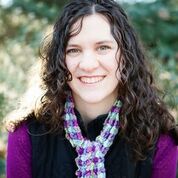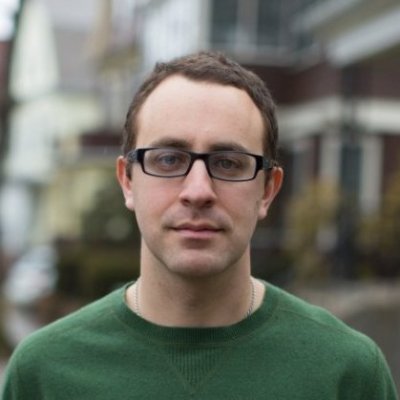community health workers (CHWs)
See the following -
Developing Nations Improving Health Communication Through the Use of DHIS2 (Part 1)
 DHIS2 implementations are spreading steadily among national health services in developing countries as well as among international non-governmental organizations (NGOs) working to improving health in the developing world through the use of health information technology. As an open source solution, DHIS2 offers developing countries the advantage of adopting a cost-effective and flexible solution for aggregate statistical data collection, validation, analysis, management, and presentation as well as for data sharing between healthcare professionals and facilities. Organizations and individuals who work with humanitarian software solutions will need to know what DHIS2 is, how it works, and how it might be implemented by national health services and other health-related projects across the globe...
DHIS2 implementations are spreading steadily among national health services in developing countries as well as among international non-governmental organizations (NGOs) working to improving health in the developing world through the use of health information technology. As an open source solution, DHIS2 offers developing countries the advantage of adopting a cost-effective and flexible solution for aggregate statistical data collection, validation, analysis, management, and presentation as well as for data sharing between healthcare professionals and facilities. Organizations and individuals who work with humanitarian software solutions will need to know what DHIS2 is, how it works, and how it might be implemented by national health services and other health-related projects across the globe...
- Login to post comments
DHIS2 - Transforming Health IT Standards in the Developing World (Part 2)
 Rwanda's 2012 implementation of DHIS2 is one of at least 16 completed national rollouts of this free and open source health data management. A total of 54 countries are deploying DHIS2 on a national scale, 30 of which are in the pilot stage or early phase in their rollouts. Since DHIS2's release in 2006, NGOs and national governments in 60 countries have deployed DHIS2 for health-related projects, including patient health monitoring, improving disease surveillance and pinpointing outbreaks, and speeding up health data access.
Rwanda's 2012 implementation of DHIS2 is one of at least 16 completed national rollouts of this free and open source health data management. A total of 54 countries are deploying DHIS2 on a national scale, 30 of which are in the pilot stage or early phase in their rollouts. Since DHIS2's release in 2006, NGOs and national governments in 60 countries have deployed DHIS2 for health-related projects, including patient health monitoring, improving disease surveillance and pinpointing outbreaks, and speeding up health data access.
- Login to post comments
District Health Information System 2 (DHIS2)
 District Health Information Software 2 (DHIS2) is a free and open source health management data platform used by multiple organizations, including the European Union (EU), and governments worldwide. It is currently being deployed in 54 countries. DHIS2 is a development project by the Health Information Systems Program (HISP) and is used for aggregate statistical data collection, validation, analysis, management, and presentation...
District Health Information Software 2 (DHIS2) is a free and open source health management data platform used by multiple organizations, including the European Union (EU), and governments worldwide. It is currently being deployed in 54 countries. DHIS2 is a development project by the Health Information Systems Program (HISP) and is used for aggregate statistical data collection, validation, analysis, management, and presentation...
- Login to post comments
Firefox OS And Medic Mobile Use The Web To Connect The World To Healthcare
At Mozilla, we are dedicated to putting the power of the Web in people’s hands in support of our mission to promote openness, innovation and opportunity on the Web. We’re pleased to announce today that we’re partnering with Medic Mobile, a leader in mHealth solutions for developing countries, to take that mission to the world’s most remote and underserved communities.
- Login to post comments
Is the Future of mHealth Based on SMS and Inexpensive Mobile Phones?
 Earlier this month the Finnish mobile phone maker, Nokia, announced that they will be re-releasing an updated version of their legendary 3310 GSM phone. Since it was first released in the early 2000s, the Nokia 3310 has gained a cult following for its incredible durability, long battery life and compact design featuring an internal antenna. Many Europeans and Americans fondly remember the 3310 as their first mobile phone, a device that made meeting up with friends in a crowd easier and a device that provided endless hours of entertainment with the timeless game Snake...
Earlier this month the Finnish mobile phone maker, Nokia, announced that they will be re-releasing an updated version of their legendary 3310 GSM phone. Since it was first released in the early 2000s, the Nokia 3310 has gained a cult following for its incredible durability, long battery life and compact design featuring an internal antenna. Many Europeans and Americans fondly remember the 3310 as their first mobile phone, a device that made meeting up with friends in a crowd easier and a device that provided endless hours of entertainment with the timeless game Snake...
- Login to post comments
Leveraging Information Technology To Bridge The Health Workforce Gap
According to some estimates, the world needs more than 4 million additional physicians, nurses, pharmacists, labo- ratory technicians, midwives, commu- nity health workers (CHWs) and other front-line health workers.1 However, there is also a shortage of faculty that can provide high-quality training and mentorship for current training pro- grammes2 and continuing education opportunities for health workers.
- Login to post comments
The Challenges of Bringing Health Care to Everyone, Everywhere
Around the world right now, more than one billion people don’t have access to basic health care. That means no checkups, no vaccinations, no medications, all because of the environment in which people live. They might be too poor to visit a clinic, or they might live too far from one, but the result is the same, and often fatal. It’s a problem that troubles many. Take physician Raj Panjabi, TED Prize winner and co-founder of Last Mile Health, who trains community health workers to bring care door-to-door in remote communities in Liberia (TED Talk: No one should die because they live too far from a doctor)...
- Login to post comments
What The U.S. Can Learn From Brazil's Healthcare Mess
Here’s what it looks like when a sprawling, diverse nation tries to cover everybody....By a lot of measures, Brazil’s Sistema Único de Saúde—or SUS—has led to huge health gains.
- Login to post comments